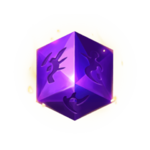Difference between revisions of "Damage"
old>Realpsojed (sorceries -> Elemental and Magic Damage, added mention of weapons with magic damage) |
old>Realpsojed |
||
| Line 24: | Line 24: | ||
| Piercing | | Piercing | ||
| Rending | | Rending | ||
| {{Fire}} | | {{c|Fire}} | ||
| {{Frost}} | | {{c|Frost}} | ||
| {{Sacred|Shock}} | | {{c|Sacred|Shock}} | ||
| {{Poison}} | | {{c|Poison}} | ||
| {{Caustic}} | | {{c|Caustic}} | ||
| {{Arcane}} | | {{c|Arcane}} | ||
| {{Sacred}} | | {{c|Sacred}} | ||
| {{Unholy}} | | {{c|Unholy}} | ||
| {{Psionic}} | | {{c|Psionic}} | ||
|- | |- | ||
| Side effect: | | Side effect: | ||
Revision as of 15:39, 16 May 2021
Damage represents the amount of harm your Weapons and Skills deal to your enemies. Direct damage is dealt directly to an enemy's HP, this is always visible in the Combat Log.
Melee & Ranged Damage
Melee & Ranged Damage is dependent on your equipped weapon's base damage and your damage stats: Weapon Damage, Main Hand Damage, Off-Hand Damage and Crit Efficiency. Strength increases your Weapon Damage only in Hand to Hand combat and Perception increases your Weapon Damage when shooting Bows and Crossbows. Finally, both active and passive abilities can also increase your damage, like Blade Maintenance.
Elemental & Magic Damage
Abilities from the sorcery trees (for example Pyromancy) and some abilities that aren't sorceries (for example War Cry) do not rely on your equipped weapon. Instead, they always have their damage listed in the ability itself. Damage of these abilities and any Magic or Nature damage on weapons (like Wizard Staff) is increased by your Magic Power and your Crit Efficiency. In case of sorceries, damage is also increased by the respective sorcery power (for example, Pyromantic Power).
Damage Types
The damage types are as follows:
| Physical | Nature | Magic | |||||||||||
|---|---|---|---|---|---|---|---|---|---|---|---|---|---|
| Slashing | Crushing | Piercing | Rending | Fire | Frost | Shock | Poison | Caustic | Arcane | Sacred | Unholy | Psionic | |
| Side effect: | None | Bleeding | Burning | Frozen | Stun | Poisoning | Acid Bath | Mana Burn | Lifesteal | Cursed | Confusion | ||
- Physical damage can be reduced by using items with Protection.
- Physical, Magical and Nature damage types can be further reduced by having the appropriate Resistances. For example, if you equip items with Physical Resistance %, it will work against all these damage types: Slashing, Crushing, Piercing and Rending.
See Combat#Defending for more in-depth explanation.
| “ | Rending damage represents damage done by claws, fangs, teeth etc. It's mostly dealt by animals and other beast-like enemies. | „ |
| ~ Wayfinder (game developer) on Steam discussions |
Damage over Time effects
Damage over time effects (DoTs) are a group of Conditions (Bleeding, Burning, Poisoned, ..) that deal damage every turn until removed. DoTs usually last only for a few turns and might dissipate on their own. Known DoT effects:
- Using Physical attacks can inflict Bleeding depending on your Bleed Chance stat. Attacking targets with Injuries can also cause Bleeding, regardless of your Bleed Chance.
- Pyromancies and stepping into burning tiles can ignite both enemies and yourself.
- Getting hit by the Forest Snake or eating the Death Cap will make you Poisoned.
Other Damage Types
A special type of damage is Returned damage. Returned damage has no damage type and ignores Protection (need confirmation!). Returned damage is only dealt to you when you hit a target that has the Damage Reflection attribute.
Another type of damage is Bodypart Damage. It represents the damage you deal to a given bodypart of an enemy when you hit them with any attack. Bodypart Damage isn't visible in the Combat Log, but when you deal enough Bodypart Damage to an arm, leg, torso or the head, the target receives an Injury for the specific bodypart. Receiving an injury is visible in the Combat Log. Injuries do not deal direct damage to enemy HP, but instead reduce their combat effectiveness. Further damage dealt to an injured bodypart can cause Bleeding, which makes Bodypart Damage a very powerful attribute.
Page last edited during patch: Expression error: Unexpected < operator.
| ||||||||||||||||||||||||||||
| |||||
